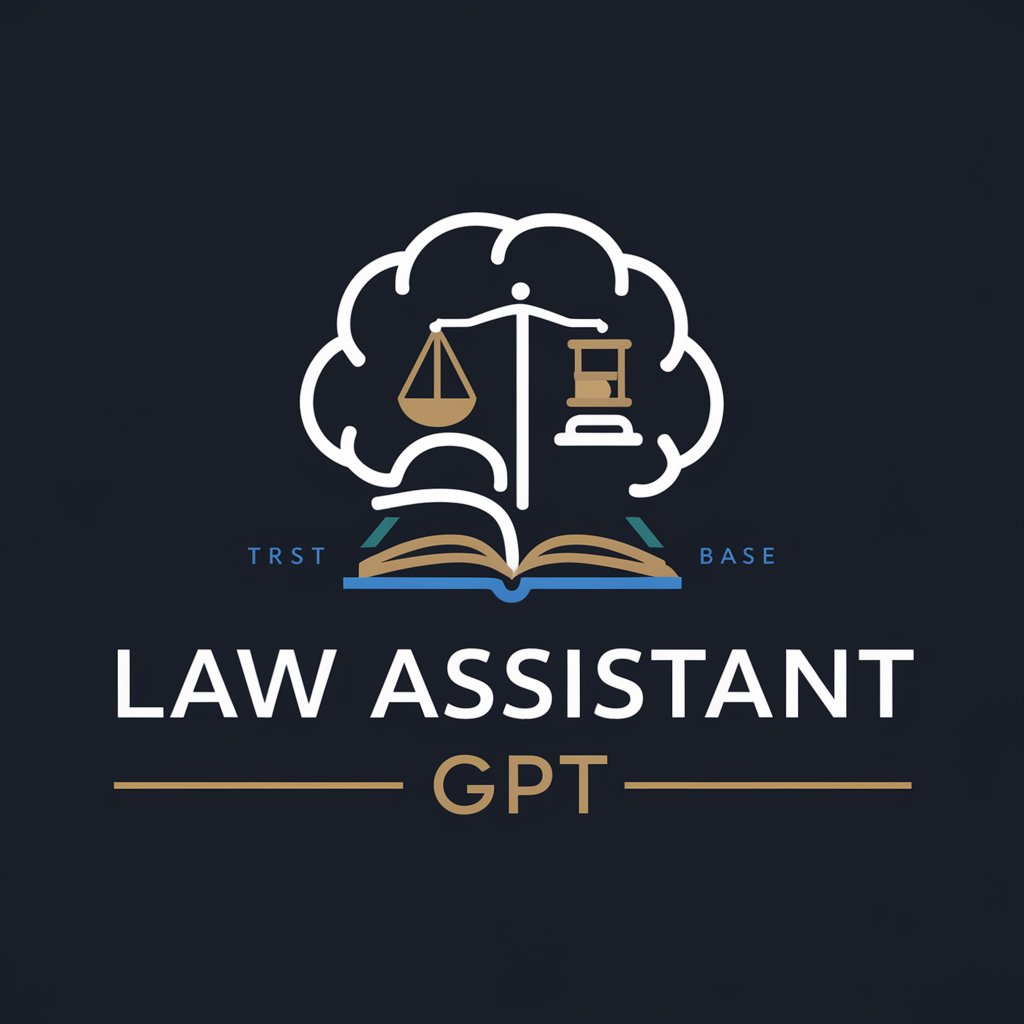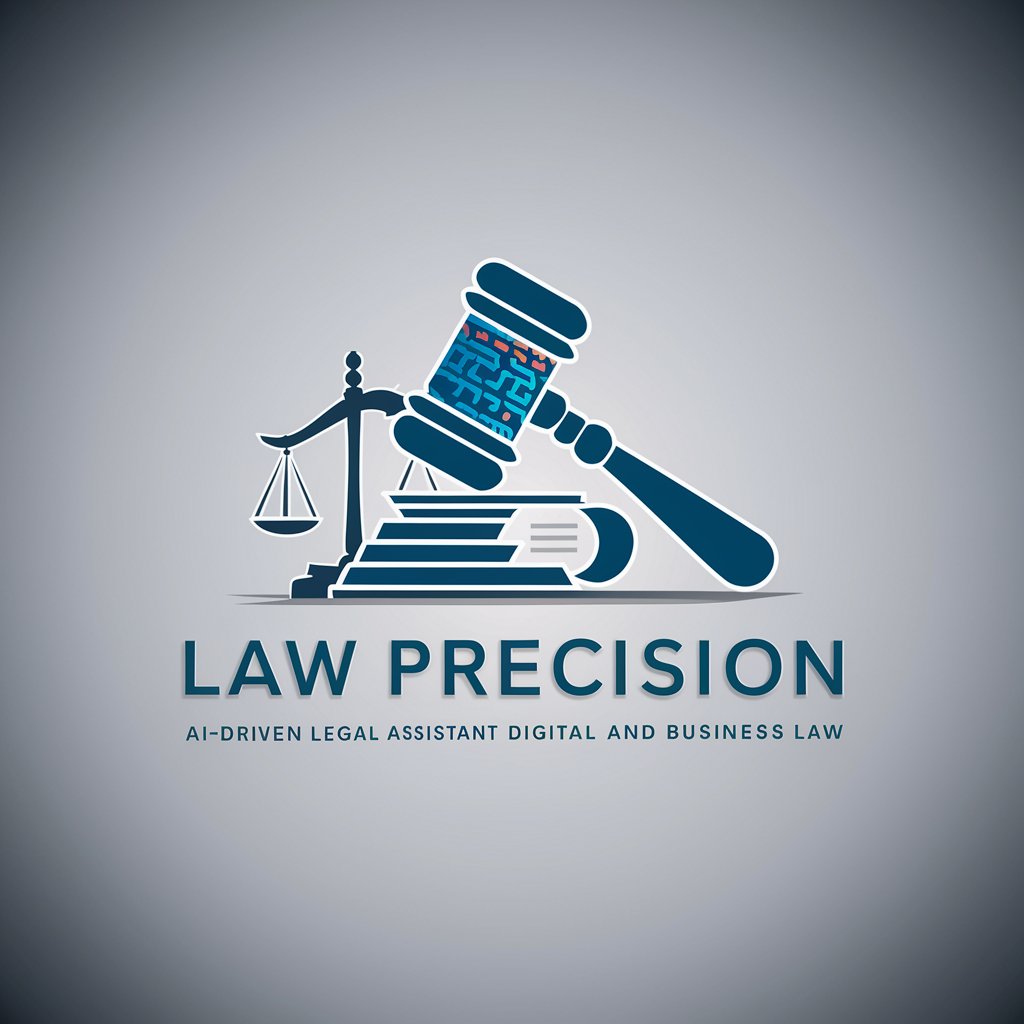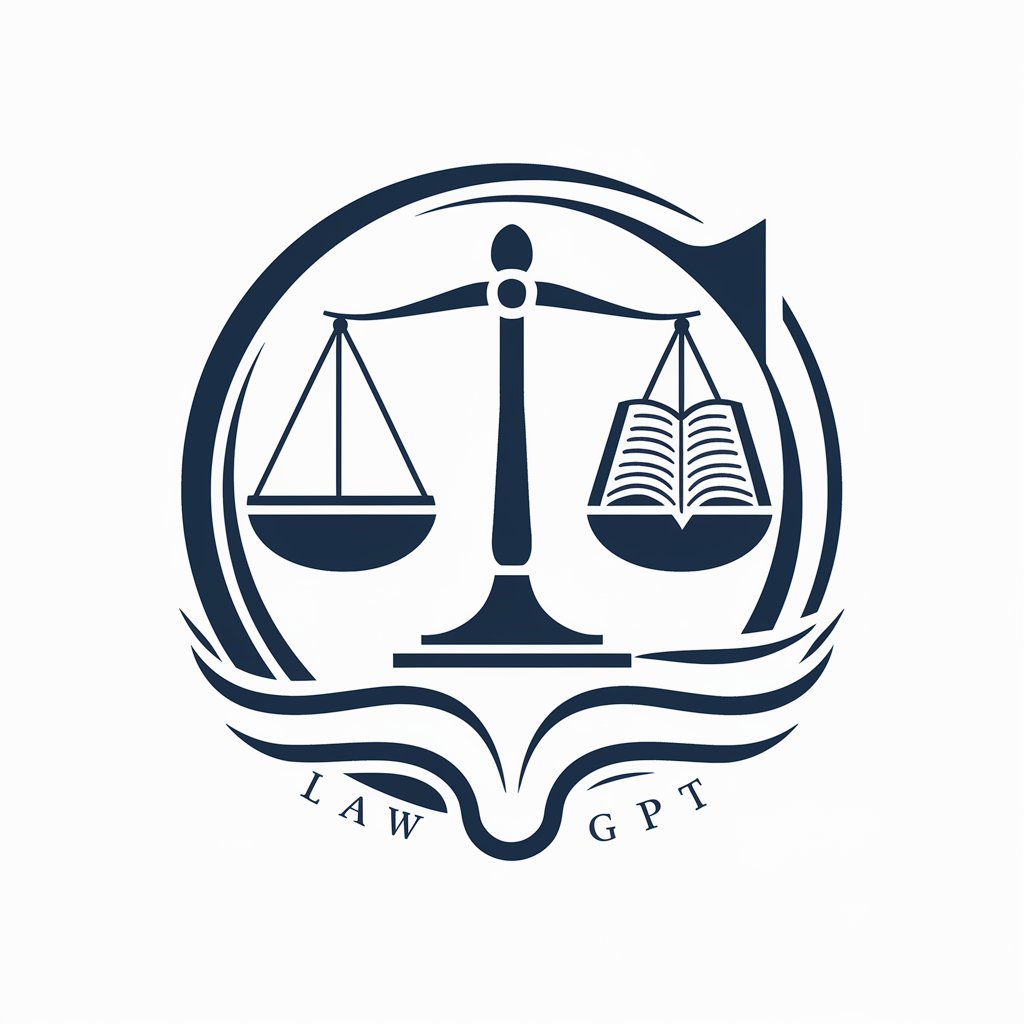
Law - Legal Information Assistant
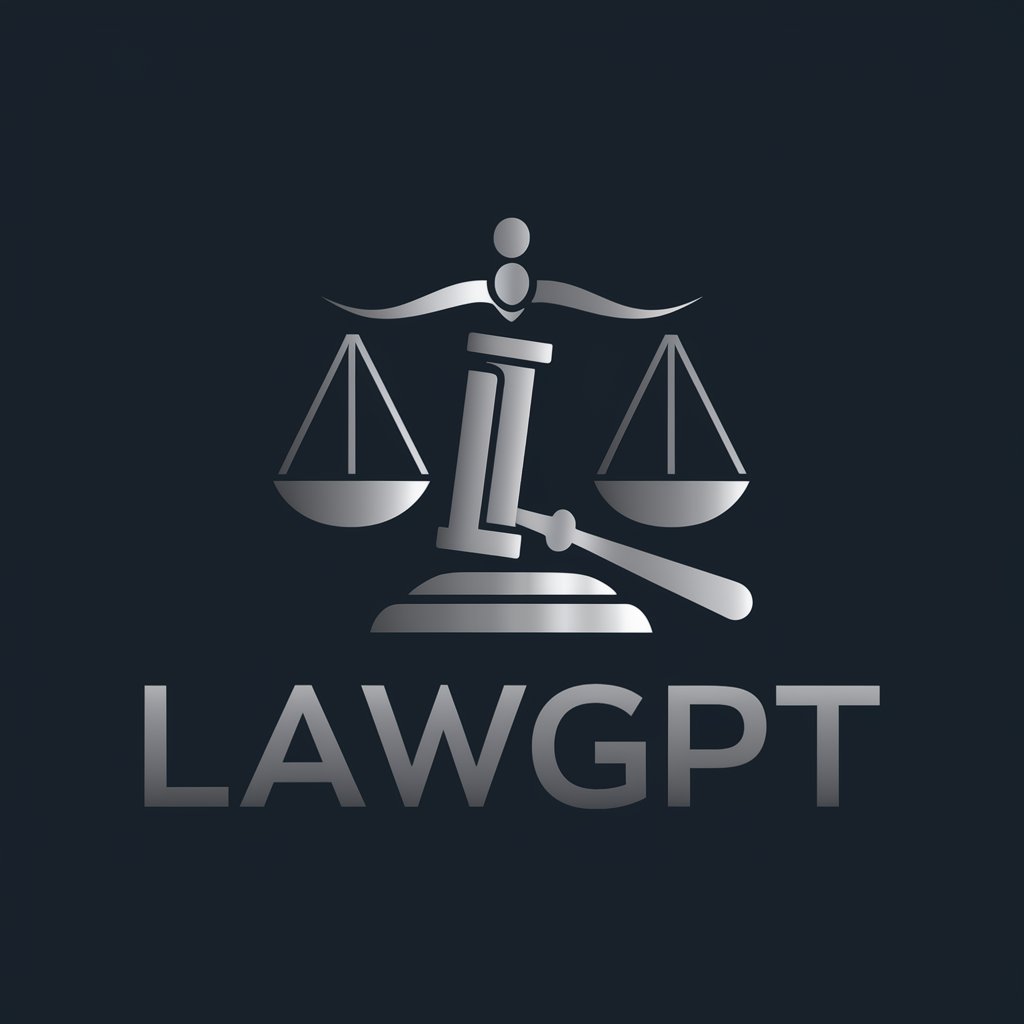
Hello! How can I assist with your legal queries today?
Empowering legal discovery with AI.
Can you explain the concept of legal liability?
What are the key differences between civil and criminal law?
How does intellectual property law protect inventions?
What steps should I take if I want to file a lawsuit?
Get Embed Code
Introduction to Law GPT
Law GPT is a specialized version of the ChatGPT AI, designed to provide users with detailed legal information, explanations of legal terms, and guidance on various legal matters. Its core purpose is to make legal knowledge more accessible to a broader audience, using precise language and clear explanations. For instance, if a user is curious about the nuances of copyright law, Law GPT can explain the basic principles, the difference between copyright and other intellectual property rights, and how these laws apply to different scenarios such as publishing content online or using copyrighted material for educational purposes. Powered by ChatGPT-4o。

Main Functions of Law GPT
Legal Information Provision
Example
Explaining the implications of recent changes in data protection laws for small businesses.
Scenario
A small business owner is concerned about how to comply with new data protection regulations. Law GPT can provide an overview of the regulation, outline the key compliance requirements, and suggest steps for ensuring their business practices align with these legal standards.
Legal Term Explanations
Example
Defining 'tort law' and describing its relevance in personal injury cases.
Scenario
An individual who recently experienced a slip-and-fall accident at a local store seeks to understand their legal rights. Law GPT can explain what tort law is, how it applies to personal injury cases, and what legal actions the individual might consider pursuing.
Guidance on Legal Issues
Example
Advising on the basic legal steps to take when starting a new business.
Scenario
An entrepreneur planning to launch a startup is unsure about the legal requirements involved. Law GPT can outline the steps for legally establishing a business, including selecting a business structure, registering the business, and understanding tax obligations.
Ideal Users of Law GPT Services
Legal Students and Academics
Students studying law or academics engaged in legal research can use Law GPT to quickly access definitions, explanations of legal concepts, and summaries of case law. This assists in studying, teaching, or conducting research by providing a quick reference tool.
Professionals Needing Legal Insights
Business owners, HR professionals, and others who need to navigate legal aspects of their work, such as compliance, employment law, or contract law, can benefit from Law GPT's ability to provide quick, understandable legal insights without needing to consult a lawyer for every question.
General Public with Legal Queries
Individuals seeking to understand their rights or responsibilities under the law, such as tenants, consumers, or anyone facing a legal issue, can use Law GPT for initial guidance and to gain a better understanding of relevant legal principles before possibly seeking professional legal advice.

Guidelines for Using Law
Start Your Journey
Access a comprehensive legal assistant without the need for ChatGPT Plus by visiting yeschat.ai for a free trial, no login required.
Identify Your Legal Query
Clearly define your legal question or issue. This will help you navigate the tool more efficiently and get relevant information.
Utilize the Search Feature
Use specific keywords related to your legal question to search within the tool. This helps in finding precise answers and relevant legal information.
Analyze the Information
Review the provided legal explanations, definitions, and guidance carefully. Cross-reference with multiple sources if necessary for a thorough understanding.
Consult a Legal Professional
For complex legal issues or to take legal action, it's advised to consult with a qualified legal professional, using the insights gained as a foundation for your consultation.
Try other advanced and practical GPTs
Rare
Unveiling the Uncommon with AI

Protection Plan
Empowering Your Purchases with AI

Valuable
Discover the Story Behind Every Valuable

Yard Tools
AI-Powered Yard Maintenance Advisor

Pro Life
Advocating for Life with AI

Wildlife Identification
Discover nature with AI insight

Fur
Empowering Ethical Fur Innovation

Herb Garden
Cultivate with AI, Thrive Naturally

Recipes
Culinary inspiration at your fingertips.

Lawyer
Empowering legal clarity with AI
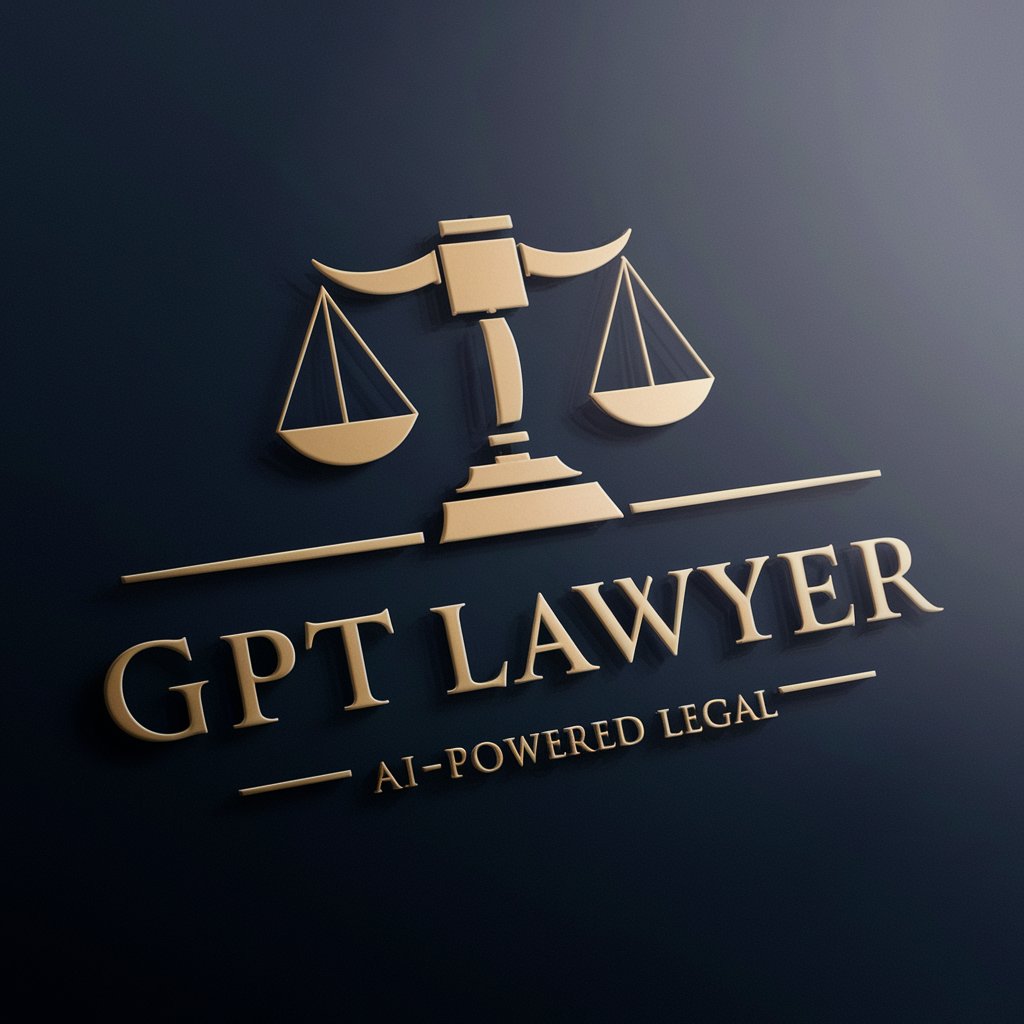
Dance Transitions
Seamless Dance Transitions, AI-Powered

Interior Design
AI-powered design insights at your fingertips

Frequently Asked Questions about Law
What legal information can Law provide?
Law can offer detailed explanations of legal concepts, information on specific laws, and guidance on a wide range of legal issues, including but not limited to family law, criminal law, intellectual property, and employment law.
Can Law help me draft legal documents?
While Law can provide templates and examples of legal documents, it's important to customize these documents to your specific situation and ideally review them with a legal professional.
Is Law up to date with current laws?
Law is regularly updated to reflect changes in legislation. However, users should verify the currentness of the legal information, as laws and regulations can change rapidly.
How does Law handle privacy and confidentiality?
Law prioritizes user privacy and does not store personal information or the details of legal inquiries. Always exercise caution when sharing sensitive information online.
Can Law replace a lawyer?
No, Law is designed to provide informational support and cannot replace the personalized advice and representation that a qualified legal professional offers.

